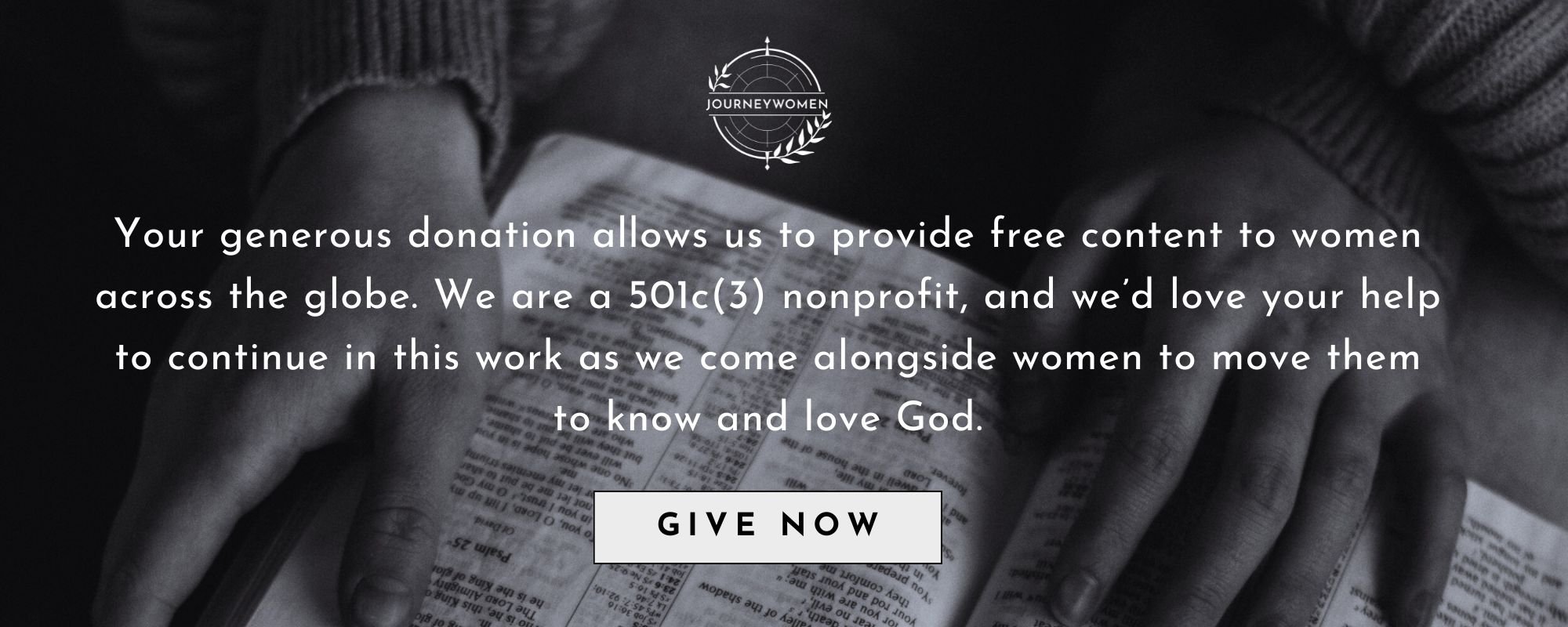Answering Hard Questions with Hope with Rebecca McLaughlin
On today’s episode, we’re chatting with Rebecca McLaughlin who answered some really difficult questions about Christianity. We pray this conversation helps you look to Scripture for answers to the hard questions that you maintain, and that it will be a resource for you as you navigate difficult spiritual conversations of your own! Rebecca writes for multiple outlets, including The Gospel Coalition, Christianity Today, and Desiring God. Her first book, Confronting Christianity: 12 Hard Questions for the World's Largest Religion, was published by Crossway and The Gospel Coalition in April 2019 and was named "Book of the Year" by Christianity Today. This is the last episode in our series: Theology in Practice: Knowing God Changes Who We Are and How We Engage with the World.
Can you tell us a little about who you are and what you do?
One of the things we're experiencing in our postmodern culture is the idea of relative truth. Is this a Christian idea? Why is it important to acknowledge that truth exists?
Why is the question "Who is God?" the most important question we can explore and seek answers to?
Where do you find the answer to that question?
How do you encourage others to pursue answers to the question of who God is too?
How does Christianity differ from other religions?
Why should we listen and engage with people who are different than us? What is the value in doing so?
How does Biblical Christianity lay a foundation for human equality and love across differences?
What does it look like for you to lovingly engage others, particularly those with whom you know maintain a different belief system, with the hope of sharing the gospel with them?
What are some of the most helpful things you've done to prepare for the hard questions we will inevitably confront as we move towards others in this way?
NOTEWORTHY QUOTES
““If there is no such thing as objective truth, then that means there is no such thing as scientific truth. We suddenly get into this weird space of saying if there is no such thing as objective truth, we have ripples of that throughout our scientific thinking. If we think of the very claim that there is no such thing as objective universal truth, that is an objective universal truth claim.”
“One of the major confusions that people have within the church and outside is that to say that Jesus is the only way is disrespectful to people of other religious beliefs. There are a few problems with that. Jesus taught us to love our enemies, not just to tolerate but to love them.”
“You can actually be very loving to somebody by insisting on a truth that they don’t want to believe.”
“In order to become a Christian, we must realize that we are morally bankrupt, that we have no right to put ourselves above anyone else.”
“I myself am a pretty miserable sinner. That is helpful because it is true, and it means that I am guarded from trying to preach a gospel that’s basically, ‘look at me, don’t you want to be like me.’ That’s not what Christians are saying. We are saying, ‘look at Jesus and how great he is. He came for people even as bad as I am.’”
“The one person who actually can see our thoughts did not run away from us, but he ran towards us.”
“We all long to be both known and loved.”
“If we have as Paul puts it the image of the invisible God in Jesus, then we can learn an awful lot about who God is through Jesus’s life and teachings and death and resurrection.”
“We meet a God who is incredibly powerful but uses his power to serve others. We meet Jesus who could have summoned a legion of angels, but instead chose to die in our place.”
“True and literal are not the same thing.”
“If we take Jesus’ claims about himself seriously, we will recognize the seriousness of being separated from him. If Jesus is the light of the world, then being without Jesus means living in utter darkness. If Jesus is the bread of life, then being without Jesus means being desperately hungry. If Jesus is the way, the truth, and the life, then being without Jesus means being eternally lost. If Jesus is the resurrection and the life, then being without Jesus means being utterly, finally, hopelessly dead.”
“Jesus knows our greatest need is him and gives himself as our greatest gift.”
“Christianity is the most diverse movement in all of history. The most racially, culturally, socioeconomically diverse movement in history. That is true globally, over the last two thousand years, and it’s true in America today.”
“Jesus broke through every racial and cultural barrier of his day.”
RESOURCES
Confronting Christianity by Rebecca McLaughlin
Born Again This Way by Rachel Gilson
Revisit your daily routines
SCRIPTURE REFERENCES
DISCUSSION QUESTIONS
What did you take away from Rebecca’s explanation of objective universal truth?
What encouraged you in the explanation of how Christianity differs from other religions?
How does understanding who Jesus says he is change how you share the hope of the gospel?
What are the hard questions you’ve faced when seeking to lovingly engage others?
How does knowing God change who you are and how you interact with the world around you?
IMPORTANT NOTE
Journeywomen interviews are intended to serve as a springboard for continued study in the context of your local church. While we carefully select guests each week, interviews do not imply Journeywomen's endorsement of all writings and positions of the interviewee or any other resources mentioned.
Affiliate links used are used where appropriate. Thank you for supporting the products that support Journeywomen!
FOR MORE OF JOURNEYWOMEN
Subscribe: Apple Podcasts | Spotify
Follow Us: Instagram | Facebook
Support the podcast by writing a review

